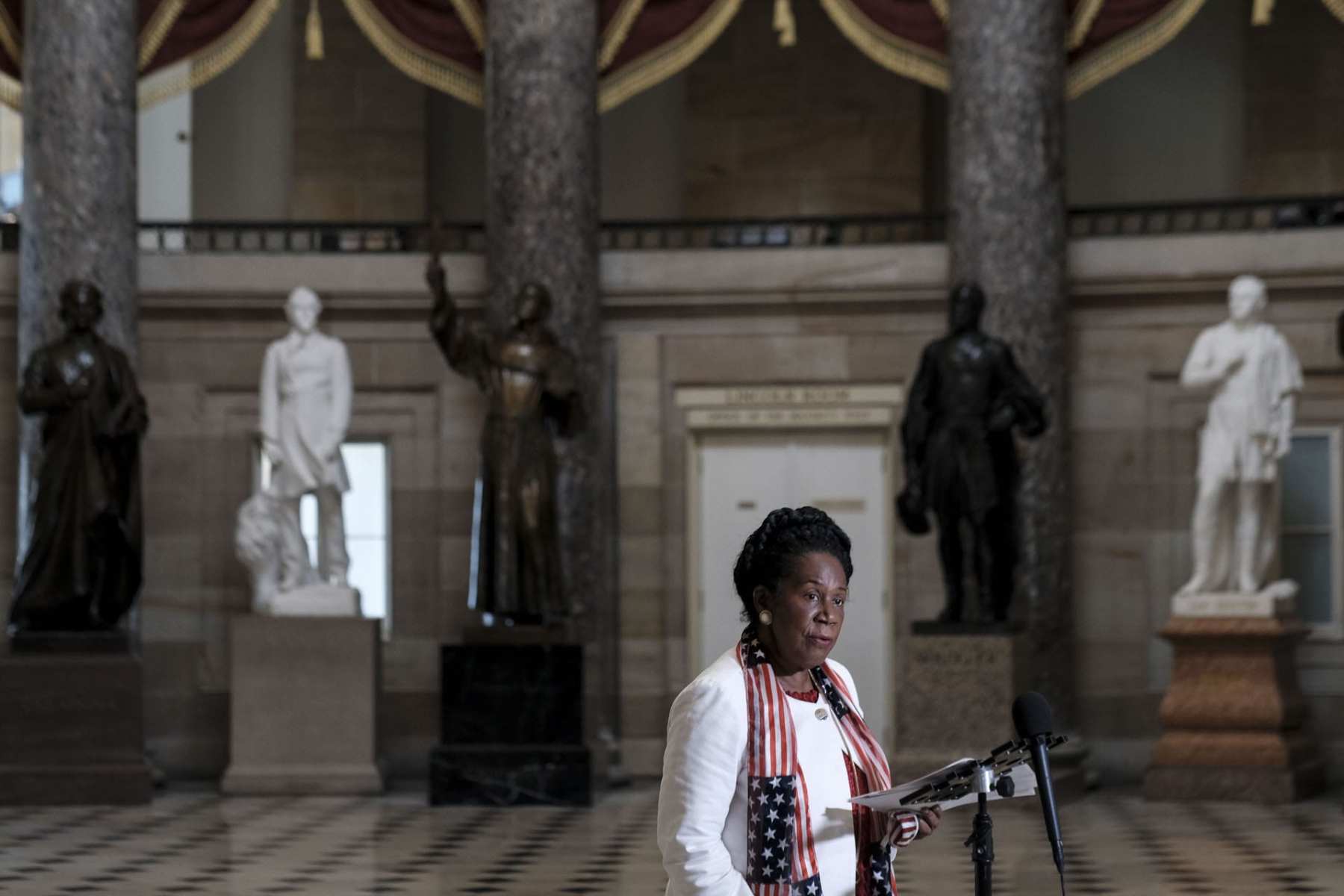House lawmakers on Wednesday debated proposed legislation to create a commission to study whether and how Black Americans should receive reparations from the federal government as recompense for chattel slavery.
Wednesday’s subcommittee hearing comes two years after Democratic presidential candidates — including now-President Joe Biden — signaled support for reparations on the campaign trail, helping to make the issue a mainstream political topic.
Holding historical photos with images depicting the brutality of slavery, lynching and riots by White people, Rep. Sheila Jackson Lee, the Texas Democrat who reintroduced the bill last month, told her colleagues that “now, more than ever, the facts and circumstances facing our nation demonstrate the necessity of placing our nation on the path to reparative justice.”
“We require a reckoning to restore national balance and unity,” Jackson Lee said.
Biden’s Democratic predecessor and the first Black president of the United States, Barack Obama, did not back reparations, but Biden expressed support for Jackson Lee’s House Resolution 40 prior to taking office. Biden has made unity and addressing racial equity a central governing priority since taking office four weeks ago as many Black lawmakers, in particular, have also emphasized accountability.
“The President knows that we don’t need a study to take action right now on systemic racism occurring today,” one Biden administration official said Wednesday when asked about the president’s support for H.R. 40.
After Wednesday’s hearing, Jackson Lee said the country is at a different moment than when the legislation was first introduced more than three decades ago. “I don’t take anything for granted, but the timing, the moment in history is significantly different,” she said in an interview, adding that the country now has “a president that understands the question of racial equity and justice” and a vice president who, as a senator, filed HR40 in the upper chamber.
In 2019, then-Democratic presidential candidate and now Vice President Kamala Harris stopped short of endorsing reparations, instead pushing for a monthly tax credit for many families.
In July 2019, Congress held its first hearing in a decade on reparations for slavery, coinciding with the 400th anniversary of the first enslaved Africans being forcibly brought to America.
Kentucky Republican Mitch McConnell, then the Senate majority leader, rejected the idea of reparations, citing Obama’s election to argue against direct payments. Then-Minority Leader Chuck Schumer said he supported H.R. 40. Democrats have since taken control of the Senate, and the men’s roles have been reversed.
The coronavirus pandemic has disproportionately killed Black Americans and harmed them economically, laying bare the inequities stemming from systemic racism. And beginning last summer, Black Americans called anew for the country to confront systemic, institutional racism in the wake of the unrelenting killings of Blacks by police and vigilantes.
The country remains racially and politically polarized — as evidenced by former President Donald Trump’s claims of a rigged election at the hands of Black voters who cast their ballots in record numbers in November in cities including Philadelphia, Atlanta, Detroit and Milwaukee.
The hearing, which lasted more than two hours, was held virtually.
Opponents of the legislation — which would not approve or quantify reparations, but explore the issue as a first step — on Wednesday raised questions about how reparations would be administered, to whom and on what basis. They said the debate ignores the progress made by Black Americans since the end of slavery and attempts to punish White Americans who were not complicit in legalized oppression of their fellow citizens.
Proponents said the harms that began with slavery persisted during the Jim Crow era in America and continue today. Quantifying the ways in which Black Americans were legally disenfranchised — economically, educationally, and in housing, health care and criminal justice — is a way to begin to repair the damage done to generations of Americans, they said.
During the hearing, Democratic Missouri Rep. Cori Bush pointed out the harms done to her own family members who were denied equal treatment over the last century.
“My story is a story of men and women who fled violence, who were stripped of their rights and protections, who were left out of G.I. bills, and New Deal subsidies. The violence my family withstood from one generation to the next was not isolated,” Bush said. “It was systematic. It was structural. It was political, backed by legislation passed by this very body to deny descendants of enslaved people economic and social opportunity.”






